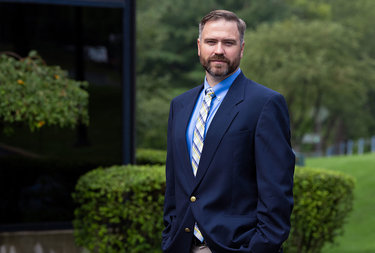VCSD school board apprised of latest in student discipline
NEW SCOTLAND — The landscape of student discipline is changing significantly,” the Voorheesville School Board was recently told by its attorney.
The district’s lawyer, Ryan Mullahy, was on hand at the board’s Jan. 6 meeting to talk about “student discipline as a component of professional development” for the board.
The very-public professional development came on the heels of a recent series of student-involved hate incidents that occurred in Voorheesville schools.
Public schools already face challenges when it comes to disciplining students, Mullahy said. For example, a “superintendent’s options are limited,” he said, as state law doesn’t “allow for the unilateral implementation of things that you might feel would be in the best interest of the child,” like counseling or drug counseling.
Mullahy explained a taskforce put together by the New York State Education Department in 2019 issued a report three years later examining what steps the state can take to make schools safer, but also looked at reforming school discipline.
“This language taken directly from the report” talks about “exclusionary discipline,” Mullahy told the board.
He said, “When we talk about student discipline more often than not, we’re thinking of exclusionary discipline. That’s not just a suspension from school. It could be exclusion from the classroom as well.”
What was important to keep in mind, Mullahy said, was where the report came from — the State Education Department — and what it was saying: The harmful harmful effects of removing students from their education can have lingering effects, “all the way to diminished graduation rates.”
The state’s commissioner of education said in the past that suspension should not be punitive; rather, it’s a corrective measure. “It should be a restorative measure, but should not be punitive,” Mullahy said.
Mullahy said that even the federal Department of Education has deemed it consistent with its mission “to prevent, limit, [and] eventually eliminate exclusionary discipline practices.” What the trend means, Mullahy said, is there “will be further limitations on a school district’s ability to impose these types of disciplinary consequences on students.”
He also pointed to a presentation he was working from, which said, “There is specific language that speaks to limiting and being cognizant of the overuse of disciplinary practices to remove students from the classroom: New York State has committed to minimizing punitive suspension practices as part of its Every Student Succeeds Act (“ESSA”) plan.
“ESSA mandates the creation of State and district-level plans to avoid “the overuse of discipline practices that remove students from the classroom.”
New York state’s approved plan recognized several goals for school districts, such as reducing the overuse of punitive and exclusionary responses to student misbehavior.
The idea for local districts, Mullahy said, is that they’ll take the ESSA language and “incorporate [a] progressive model of student discipline,” which includes a lot about restorative practices.
Broadly, restorative practice in education is an approach to school discipline that focuses on relationships, accountability, and repairing harm rather than relying only on punitive measures, like suspension or expulsion.
“Restorative practices are the direction that the state wants public schools to lean into heavily to take the place of these exclusionary practices,” Mullahy told the board.


